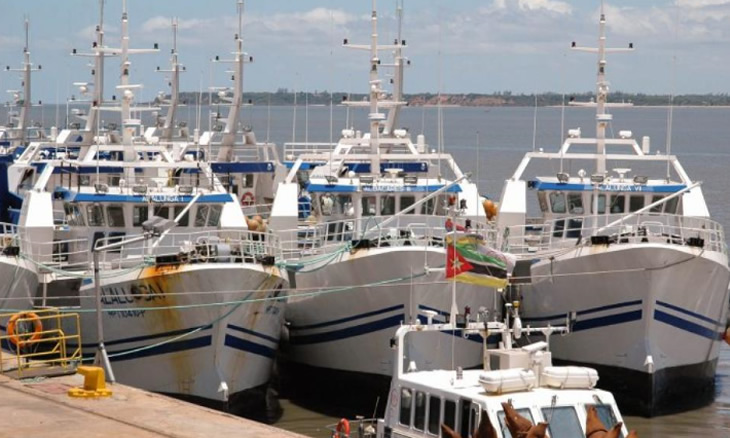Mozambique: 115 projects budgeted at five billion dollars approved in first six months - PM
Ematum does not have a fishing licence – report

File photo: O País
Only the license is missing! The Mozambican Tuna Company has workers, boats and fishing rights, but Deputy Director General of the National Fisheries Administration Stela Maússe says the controversial company is not licensed to catch tuna.
This means that Ematum cannot do what was determined as its mission when it was created by the state in 2013: catch and market tuna and other fishery products.
Maússe explains that the firm did not even require such a license to practice fishing because, for this purpose, the company would have to have “operational vessels in a position to operate. We will only license a company if it has vessels in a position to operate. We then go conduct an inspection and, if all is well and in a position to operate, we issue the licence”.
The statutes of association of the company published in the government gazette make it clear that its purpose was catching and marketing tuna and other fishery products, although the enterprise could conduct other activities.
Emergence of Ematum
Mozambican Tuna Company (Ematum) was incorporated under private law, but made up of institutions with large proportions controlled by the state, namely IGEPE (34%), GIPS (33%) and EMOPESCA (33%). The Mozambican state holds 86.8% of the controversial company.
Ematum was created with a social capital of 15 million meticais. Later, the firm was obliged to use an external credit line of 300 million Euros to enable its operations.
The loan did not have the approval of the Mozambican parliament and became the centre of what is known as the “Hidden Debts” scandal, disclosed in 2015.
At the time of the acquisition of vessels for the company, Finance Minister Manuel Chang, certain that the company would succeed in its activity, said that the loan would not involve the state. But the company was not successful, and indeed did not even begin operations, the vessels lying idle in the port of Maputo for a long time.
In 2016, the state decided to legalise the debts and transfer them into the State General Account of 2015, but the company has still returned a single penny to the state’s coffers.
Nor could the workers even get their wages. Two months without pay led to a strike, and the newspaper O País then found that the vessels were not even operational, but were instead at anchor, rusting and flyblown.
Recently, the government presented a restructuring plan for Ematum, intending to amalgamate it with MAM and Proindicus, two other companies involved in the hidden debt scandal.
More than 20 tonnes of tuna caught in the first half of 2018
While Ematum is not licensed, Maússe says other companies in the tuna business are achieving encouraging results.
The tuna industry in Mozambique has been growing, she says. Mozambique caught more than 20 tons of tuna in the first six months of this year alone.
“This amount refers only to the industrial fleet. The artisanal catch is qualified globally as just fish and not as tuna specifically,” she explains.
The fisheries sector manager notes that the tuna catch is not equally spread over the months of the year, since the fish is migratory. In the south, tuna is traditionally caught using a longline, the catch peaking in April each year. In the north, a purse seine net is preferred.












Leave a Reply
Be the First to Comment!
You must be logged in to post a comment.
You must be logged in to post a comment.